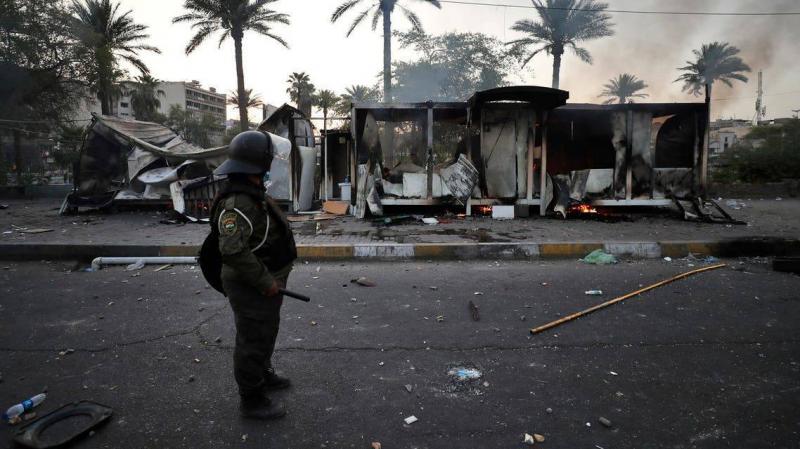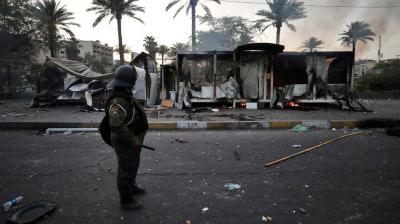As attacks continue from "unknown" armed factions in Iraq, whether targeting military bases or through intimidation and threats against activists, many activists, officials, and diplomats fear that these factions and their affiliated parties will strengthen their position and influence ahead of the upcoming elections, undermining protesters' hopes for change in the country. Despite the Iraqi government's decision to hold early elections in October as a solution to the country's problems, a series of recent events have highlighted the power of some of these armed groups allied with Iran, and their impunity from punishment and accountability.
While the largest Iraqi parties prepare to divide the electoral spoils, intimidation, threats, and killings of activists demanding no political quota among parties, reforms, and no foreign dependency persist, leading many young candidates to withdraw or opt not to participate in the upcoming elections.
In this context, prominent Iraqi human rights activist Hanaa Edward stated, as reported by Reuters on Thursday, that the targeting of activists and threats against candidates continues, explaining that it would be extremely difficult to conduct fair elections under such circumstances.
Moreover, activist Hisham Al-Mozani, who helped establish a new political party, noted that the presence of supporters of competing armed groups in Baghdad this year frightened his party away from running in the elections. He said, "I am now displaced after they burned my car and attacked and set fire to my house."
A government official, who requested anonymity, asserted that armed groups and what he referred to as the "old guard" control the country, and that whatever results from conducting elections, even with international oversight, will only legitimize them.
Additionally, a spokesperson for the Iraqi election commission confirmed that many registered candidates have recently withdrawn. This ongoing intimidation and impunity appear to create a favorable environment for large parties and groups associated with armed factions, strengthening their dominance in the upcoming elections, according to diplomats and observers.
It is worth noting that Iraq passed a new electoral law in 2019 that theoretically encourages independent candidates, aiming to motivate pro-democracy youth to run, but very few have done so thus far.




